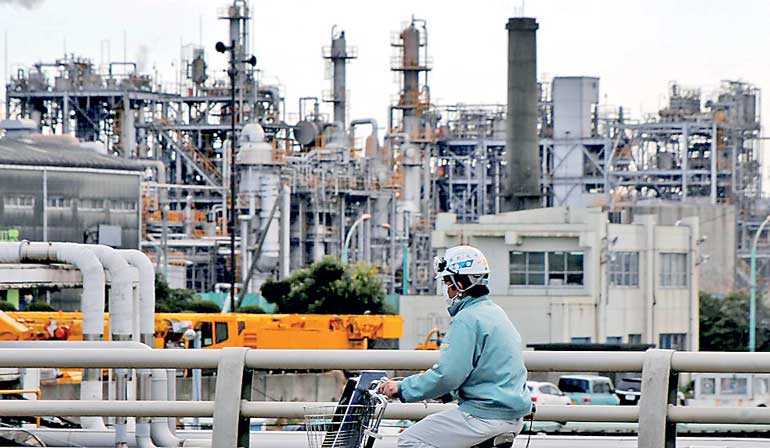Friday Feb 20, 2026
Friday Feb 20, 2026
Tuesday, 11 December 2018 00:00 - - {{hitsCtrl.values.hits}}

TOKYO (Reuters): The Japanese economy contracted the most in over four years in the third quarter as capital expenditure tumbled, raising concerns about demand at home and overseas as the export-reliant nation grapples with global trade frictions.
The gross domestic product shrank at an annualised rate of 2.5%, deeper than an initial estimate of a 1.2% contraction and against economists’ median estimate for a 1.9% decline, revised data from the Cabinet Office showed.
That followed a revised 2.8% expansion in the second quarter, and marked the sharpest contraction since the second quarter 2014 when the economy was hit by a sales tax hike in April that year.
Economists expect the economy, the world’s third largest, to stage a rebound in the current quarter, noting the third-quarter slump was caused in part by natural disasters that disrupted supply chains and factory output.
However, the strength of recovery remains in doubt given cooling global growth, a rising tide of protectionism and slowing company profits.
The revised figure translates into quarter-on-quarter contraction of 0.6% in real, price-adjusted terms, against a preliminary reading of a 0.3% slide and economists’ median estimate of a 0.5% decline.
The capital expenditure component of GDP fell 2.8% in July-September from the previous quarter, versus the median forecast for 1.6% decline, and the preliminary 0.2% drop.
That was the sharpest quarter-on-quarter decrease since the third quarter of 2009, the Cabinet Office data showed, raising worries about business spending which has been a bright spot in the economy.
Analysts say capex will be underpinned by corporate demand such as for refurbishing old facilities and boosting investment in automation and labor-saving technology to cope with labor shortages, although the pace of gains will likely be modest.
Private consumption, which accounts for roughly 60% of GDP, fell 0.2% in July-September from the previous three months, versus 0.1% drop seen in the initial estimate.
Domestic demand shaved 0.5 percentage points off the revised GDP figure, while net exports – or exports minus imports – contributed minus 0.1 percentage point.